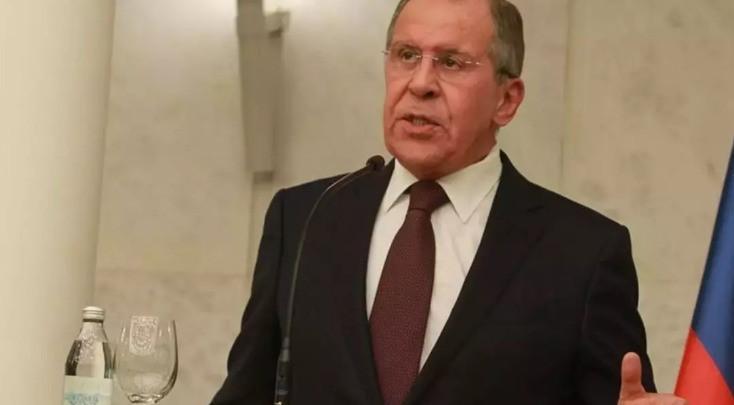
Russian Foreign Minister Sergey Lavrov has affirmed Russia's readiness to engage in discussions regarding any constructive offers pertaining to the Israel-Palestine conflict and to cooperate with Türkiye to de-escalate the tension in the region.
“We are ready to discuss any constructive proposals. This initiative [Türkiye’s guarantorship model], which I heard about the other day, is clearly dictated by the desire to achieve de-escalation and normalize the situation.” Lavrov said during a press conference in Pyongyang, North Korea, on Oct. 19.
Turkish Foreign Minister Hakan Fidan announced on Oct. 16 that they proposed a guarantorship model to resolve the conflict, citing that countries from the region, including Türkiye should be the guarantors of Palestine while some other countries may be chosen as Israel’s guarantors.
"We would like to hear from our Turkish friends, with whom we are in constant contact," about the guarantorship proposal, Lavrov told reporters.
Noting that Russia advocates that any approaches be based on a balance of interests of the parties, and not on imposing someone’s interests at the expense of others, Lavrov said that the Turkish initiative aims to ensure such a balance.
“We will be ready to cooperate in its consideration,” he added.
Stressing that the risk of the Israel-Hamas crisis escalating into a regional conflict is quite serious, Lavrov noted that a real mechanism could be a decision of the U.N. Security Council calling on all parties to immediately stop any military and violent actions, to ensure a solution to humanitarian problems, taking into account the catastrophe.
He remanded the U.S. vetoed a United Nations Security Council resolution on Oct. 18 that would have called for humanitarian pauses in the conflict to allow humanitarian aid access to the Gaza Strip.
“The United States vetoed the revolution, which called for stopping any hostilities and beginning to resolve humanitarian issues. Thus, the United States showed that it is not ready to call for a truce, a ceasefire. If this is so, then they can probably assume that the conflict may escalate.”